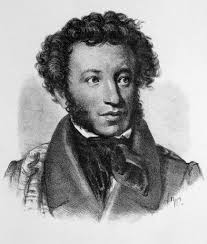Turkish Press
The origin of renowned Russian poet Alexander Pushkin has long been a source of dispute between historians in Ethiopia and neighboring Eritrea.
“[There’s] no question about Alexander Pushkin being an Ethiopian,” Ayalneh Mulatu, who translated Pushkin’s poetry into Amharic, the language of Ethiopia, told Anadolu Agency.
“Pushkin belongs to Ethiopia because his great grandfather, Abraham Hanibal, was born of Ethiopian parents on Ethiopian soil,” he said.
Born in 1799 in Moscow, Pushkin is considered Russia’s greatest poet and the founder of modern Russian literature.
His grandfather, Abram Gannibal, was born in Ethiopia before being brought to Russia as a slave of Russian Czar Peter the Great.
In Russia, Abram climbed the ladder of Russian society, eventually becoming an aristocrat.
According to Mulatu, Pushkin was proud of his grandfather and even dedicated a poem to him.
“He even wrote a poem titled ‘My Bloodline,’ admiring his black great grandpa, in response to a person who tried to undermine Hanibal,” he said.
Mulatu and many Eritrean historians agree that Gannibal was born at a place called Loggo Sarda in 1696.
Since Eritrea seceded from Ethiopia in 1991, Loggo Sarda has fallen under Eritrean administration.
“Once recorded accurately, history never changes… Pushkin’s bloodline is from Ethiopia. His great grandfather lived and died as an Ethiopian,” Mulatu said.
The Russians, he said, “never want to hear that Pushkin was an Ethiopian or African.”
“It is painful for them to accept that Pushkin, the father of modern Russian language and literature, is a black man,” he added.
Monuments commemorating Pushkin have been set up in several countries, including Russia, Ethiopia and Eritrea.
In 2002, the Ethiopian government built a bust of Pushkin and named a square and an avenue – located near African Union headquarters – after the celebrated poet.
Seven years later, Eritrea erected its own monument to the Russian writer, likewise naming a street after him.
In both cases, Russian diplomatic representatives had taken part in the unveiling ceremonies.
“Pushkin is a world figure,” Mulatu said. “The whole world celebrates him as a father of modern literature.”
